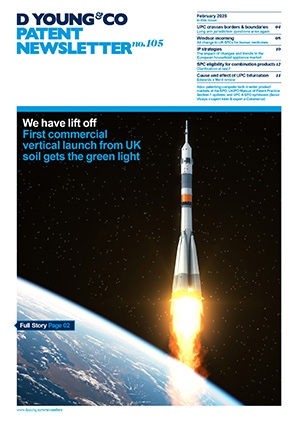Conversant Wireless v Huawei: FRAND & Jurisdiction
In Unwired Planet v Huawei, the Patents Court of England & Wales held that it was able to determine the terms of a worldwide FRAND licence and, if the prospective licensee declined to take such a licence, that it would grant an injunction in the UK. This is a potentially powerful tool for standard essential patent (SEP) holders seeking to enforce their rights. In Conversant Wireless v Huawei the jurisdiction of the English and Welsh courts to do this has been reviewed.
In 2017, Conversant Wireless commenced patent infringement proceedings against Huawei and ZTE in relation to four standard essential patents, seeking as relief a determination of a worldwide FRAND licence for its global standard essential patent portfolio.
Huawei and ZTE sought to dismiss or stay the claims on the basis that the Patents Court of England & Wales lacked jurisdiction or on the grounds of forum non conveniens. They also asserted that they had not been correctly served.
Huawei and ZTE argued, among other things, that the infringing goods were principally manufactured out of the jurisdiction (in China) and that the validity of the Chinese equivalent of the UK patents in suit was being challenged before the Chinese courts. They reasoned, therefore, that Conversant Wireless’ claim was, in effect, a claim for infringement of foreign patents, the validity of which was disputed, the relief sought depending on the outcome of that validity.
Mr Justice Carr heard the application, broadly deciding in favour of Conversant Wireless and concluding that the court had jurisdiction. As to service, while the claim had been improperly served, he gave permission to serve out of jurisdiction, which should remedy the issue.
Mr Justice Carr reasoned, among other things, that there was nothing precluding Huawei and ZTE from continuing to challenge the validity and non-infringement of the Chinese patents. If a global FRAND licence were determined by the Patents Court, it could provide that no royalties would be payable in relation to any patents subsequently held to be invalid or not infringed. Conversely, if the Chinese Court held the patents to be valid and infringed and determined a FRAND royalty for them, any FRAND licence could incorporate this rate.
Case details at a glance
Jurisdiction: England & Wales
Decision level: Patent Court
Parties: Conversant Wireless Licensing S.A.R.L (claimant) and imant (1) Huawei Technologies Co. Ltd (a company incorporated under the laws of the People's Republic of China), (2) Huawei Technologies (UK) Co. Ltd, (3) ZTE Corporation (a company incorporated under the laws of the People's Republic of China) and (4) ZTE (UK) Limited.
Citation: [2018] EWHC 808 (Pat)
Hearing dates: 27 & 28 February and 1 &2 March 2018
Link to full decision (Bailii): http://www.bailii.org/ew/cases
